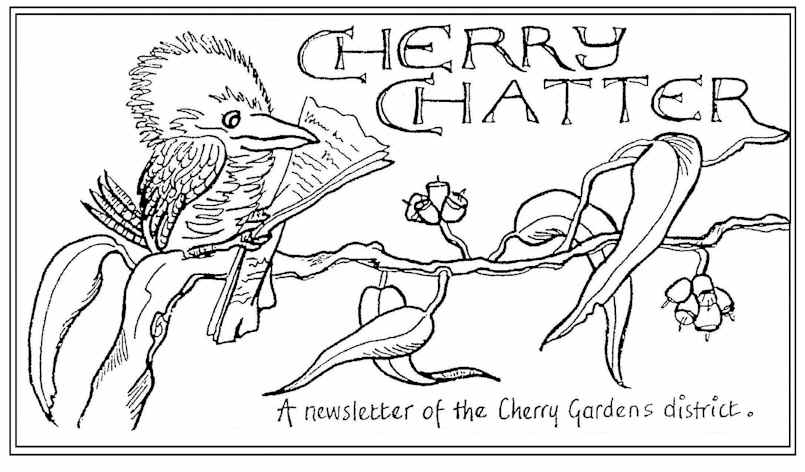Friends of Scott Creek Conservation Park
As we continued to receive steady rainfall through May and June, it became apparent as we visited different parts of the park that some plant species did it tougher than others.
While most recover quite quickly once the rain comes back, and who doesn’t love the smell of bushland after it has rained, it was evident that a few species couldn’t cope.
I have noticed quite a number of dying Messmate Stringybark (Eucalyptus obliqua) in the Mount Lofty Ranges, including in Scott Creek CP. There have also been a few deaths of quite old Silver Banksia (Banksia marginata), which is the only locally indigenous species of banksia we have in the Adelaide Hills.
It is possible that other factors are also at play, in particular the root-rot disease Phytophthora cinnamomi (Pc). Pc is a soil-borne plant pathogen that attacks the roots of susceptible plants, destroying the root system and reducing the ability of the plant to absorb water and nutrients. This causes symptoms referred to as ‘dieback’ which can lead to plant death.
Thousands of Australian native plant species are susceptible to Pc, and several of those species may be at risk of extinction due to its impacts. The dramatic impact of Phytophthora spp. infestations on plant communities may also lead to major declines in some insect, bird and animal species due to the loss of shelter, nesting sites and food sources.
Pc spreads through soil, water and organic matter. It can remain dormant for long periods during dry weather and is impossible to eradicate from infested areas in most situations, which means limiting further spread is critical. Any activity that moves soil, water or plant material can spread the disease. This includes soil on tools, footwear and vehicles.
To help to prevent the spread of this plant disease, arrive clean, leave clean. Ensure all clothing, hats, footwear, tools, equipment, machinery and vehicles are free of mud, soil and organic matter before entering and exiting bushland.
Parts of some National Parks, including Scott Creek CP, are closed for the wetter parts of the year, when Pc is more likely to be moved about. Please respect track closures at this time and ensure you don’t contribute to the spread of this insidious disease.
Are you interested in nature? Native plants? Wildlife? Looking for a break from the hustle and bustle? Want to give something back to the community or Mother Nature? We welcome anyone who wants to come along and see what we do along to any of our activities.
Anyone wanting information about the Friends of Scott Creek CP, or wanting to get involved in any of the Friends’ activities, can contact us on info@friendsofscottcreekcp.org.au or visit our very informative website www.friendsofscottcreekcp.org.au. You can also now follow us on our Facebook page where you can find up to date information about our activities, including photos of our flora and fauna.
All working bees meet at 9am at the Almanda Car Park on Dorset Vale Road (unless there is a MLR fire ban or very wet weather). To attend bird banding, contact the coordinator Don Reid on 83882123.
Programme of activities
July
Tue 2 Working bee
Sat, Sun 6, 7 Bird banding
Sun 14 Working bee
Sat, Sun 20, 21 Bird banding
Wed 24 Social lunch
Sat 27 Working bee
A male Superb Fairy-wren at bird banding in Scott Creek CP.
Local Silver Banksia is one species that suffered more than most from the summer drought.



